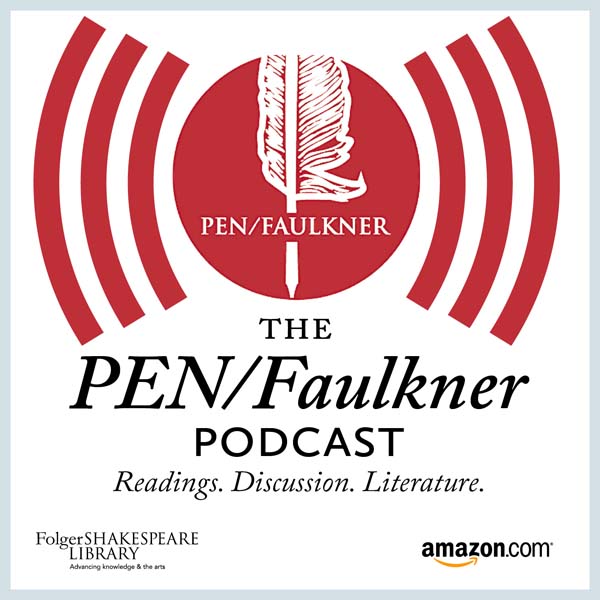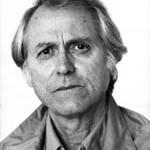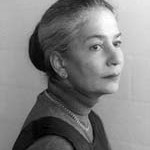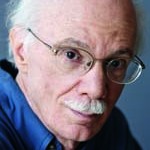About the Winner
JULIE OTSUKA
The Buddha in the Attic
(Knopf)
Julie Otsuka’s The Buddha in the Attic is a precise, poetic novel that tells the story of Japanese picture brides brought to California from Japan in the early twentieth century. In a series of eight slim, self-contained chapters, Otsuka crafts a first-person plural voice described as “incantatory” in The New York Times. This collective voice is borne out of a harsh boat trip that binds the women to one another in both experience and expectation, creating a shared identity for those who are soon to be exquisitely alone in a new world. Upon arrival in California, these women meet husbands who are strangers, begin to bear children who are American, and are eventually forced into internment camps. Otsuka’s evocation of the shared experience of emotional and cultural isolation creates what The San Francisco Chronicle describes as “an understated masterpiece about our treatment of the ‘other,’ the distillation of a national tragedy that unfolds with great emotional power.”
Julie Otsuka was born and raised in California. In addition to The Buddha in the Attic, Otsuka is the author of the novel When the Emperor Was Divine and a recipient of the Asian American Literary Award, the American Library Association Alex Award, and a Guggenheim Fellowship. She lives in New York City.
About the Finalists
 RUSSELL BANKS
RUSSELL BANKS
Lost Memory of Skin
(Ecco)
Russell Banks’s Lost Memory of Skin traces the rich, heartbreaking turns in the life of a convicted sex offender known only as the “The Kid.” Released from a prison sentence for an online tryst with an underage girl that went too far, The Kid falls in with an encampment of other sex offenders who live beneath a south Florida highway underpass. This changes when he meets “The Professor,” a genius sociologist who recruits him for research. It’s a rich, often disturbing narrative that The Washington Post’s Sue Miller says shows off Banks’s “greatest gifts,” like “his ability to write about large issues — historic, cultural, socioeconomic — while presenting the particular dilemmas and failings of sharply drawn characters.”
Russell Banks’s novels and short story collections include The Sweet Hereafter, Cloudsplitter, Rule of the Bone, and Affliction. He has contributed poems, stories, and essays to Vanity Fair, The New York Times Book Review, Esquire, Harper’s, and numerous others. Banks’s awards include the John Dos Passos Award and the Literature Award from the American Academy of Arts and Letters. Continental Drift and Cloudsplitter were Pulitzer Prize finalists; Affliction and Cloudsplitter were PEN/Faulkner Award for Fiction Finalists. Banks is the founder and President of Cities of Refuge North America. In 2011 the French Minister of Culture awarded Banks the rank of Officier des Arts et Lettres.
DON DELILLO
The Angel Esmerelda: Nine Stories
(Scribner)
Don DeLillo’s The Angel Esmeralda: Nine Stories chronicles (and foretells) three decades of American life. Set in Greece, the Caribbean, Manhattan, a white-collar prison, and outer space, these stories represent DeLillo at his finest. In the title story, Sisters Edgar and Grace, nuns working the violent streets of the South Bronx, confirm the neighborhood’s miracle, the apparition of a dead child, Esmeralda. Writing in The New York Times, Michiko Kakutani described the story as “a dazzlingly told tale of despair and ruination, the dream of redemption and the testing of faith…the tale not only uses Mr. DeLillo’s electric gifts of language, but is also one of his rare, deeply emotional forays into the human heart.”
Don DeLillo is the author of fifteen novels, including Falling Man, Point Omega, Libra, and White Noise, and three plays. He has won the National Book Award, the PEN/Faulkner Award for Fiction, and the Jerusalem Prize. In 2006, his masterpiece Underworld was named one of the three best novels of the last twenty-five years by The New York Times Book Review, and in 2000 it won the William Dean Howells Medal of the American Academy of Arts and Letters for the most distinguished work of fiction of the past five years.
ANITA DESAI
The Artist of Disappearance
(Houghton Mifflin Harcourt)
In the three novellas that comprise The Artist of Disappearance, author Anita Desai confronts art’s sometimes incongruous place in a rapidly changing, modern world. Set in three areas of India, Desai’s protagonists are suspended, haunted by their past failings and paralyzed by the restricted roles they feel forced to play. In “The Museum of Final Journeys,” a government official looks back on his first appointment as a junior officer in a far-flung, rural province, where he is asked by the overseer of a large estate for help in cataloging and restoring a collection of Asian antiquities. In “Translator Translated,” Prema Joshi, a frustrated literature professor, tests the boundary between writer and translator as she translates a novel by her favorite author from a rural dialect into English. The titular novella follows Ravi, the discarded son of wealthy, adoptive parents as he clings to the remains of his family’s estate and strives to create a secret garden where he can be alone with nature. “In changing India, where deep-rooted tradition meets the great, cruel engine of unbridled capitalism, stories of loss, beauty and hurt abound,” writes Hector Tobar for The Los Angeles Times.
Born and educated in India, Anita Desai is the award-winning author of over a dozen novels and collections, including Baumgartner’s Bombay, Clear Light of Day, Fasting, Feasting and The Zigzag Way.
STEVEN MILLHAUSER
We Others: New and Selected Stories
(Knopf)
Praised by the Guardian UK’s Patrick Ness as “mammoth” and “beguiling,” Steven Millhauser’s collection We Others: New and Selected Stories pulls together thirty of Millhauser’s unique, ambitious short stories from the last thirty years, with settings that range from a museum of oddities (“The Barnum Museum”) to Thomas Edison’s laboratory (“The Wizard of West Orange”). A magical realist who has been compared to Kafka and Borges, The Washington Post’s Michael Dirda writes of Millhauser’s work that it “illustrates the very definition of the uncanny—that moment when the homey or familiar suddenly swerves into something rich, strange and menacing.”
Steven Millhauser is the author of twelve works of fiction, including Edwin Mullhouse, Dangerous Laughter (stories), and Martin Dressler, which was awarded the Pulitzer Prize in 1997. His most recent collection, We Others, contains seven new and fourteen selected stories, written over the past thirty years. His work has been translated into fifteen languages.
Listen to the Podcast
 The 2012 PEN/Faulkner Award for Fiction Ceremony & Reading was recorded and produced as an episode of the PEN/Faulkner Podcast. You can listen to this episode and others on the Podcast Page.
The 2012 PEN/Faulkner Award for Fiction Ceremony & Reading was recorded and produced as an episode of the PEN/Faulkner Podcast. You can listen to this episode and others on the Podcast Page.
You can also Subscribe to the Podcast in iTunes.
About the 32nd Annual PEN/Faulkner Award for Fiction
Celebrating the winner as “first among equals,” all five authors were honored during the 32nd Annual PEN/Faulkner Award for Fiction Ceremony at the Folger Shakespeare Library, located at 201 East Capitol Street, SE on Saturday, May 5, at 7 pm. You can find a list of past winners and finalists of the PEN/Faulkner Award for Fiction here.




